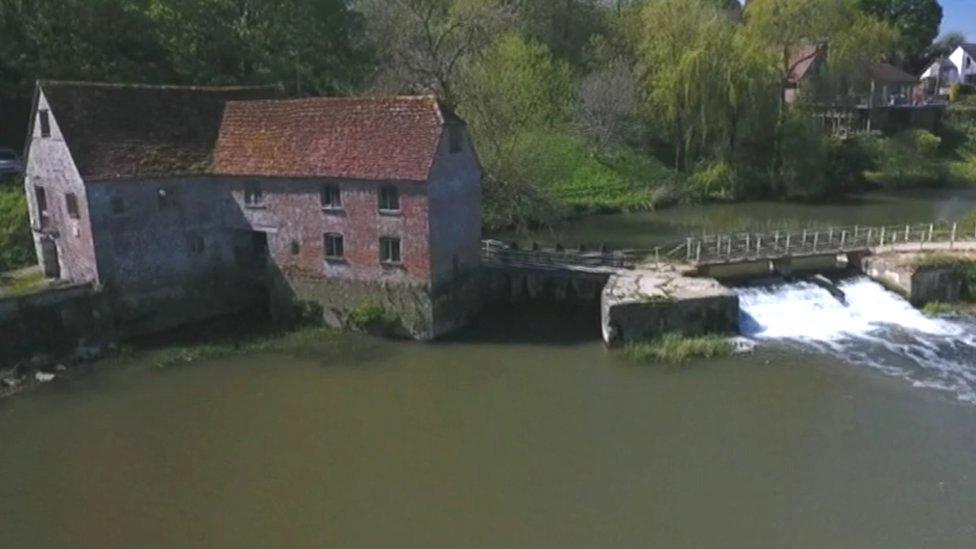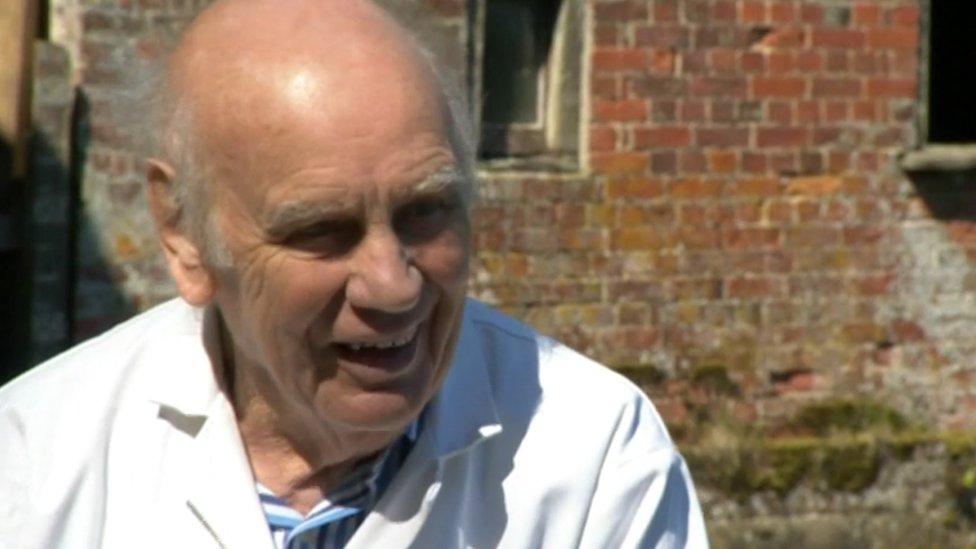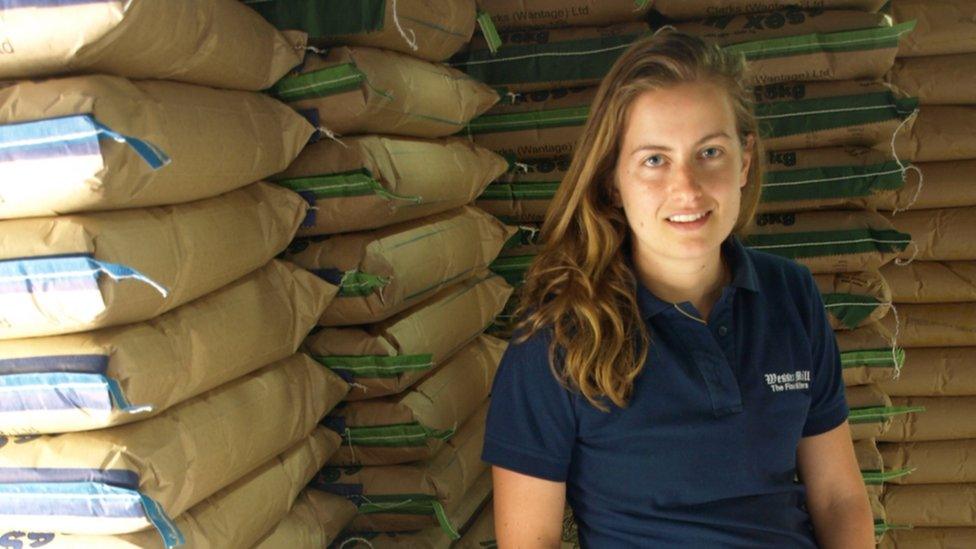Coronavirus: Ancient mill resumes commercial flour production
- Published

Sturminster Newton Mill is a popular tourist attraction but has been closed to visitors since the coronavirus lockdown began
An ancient water mill which usually operates as a tourist attraction has started producing flour on a commercial scale to meet increased demand during the coronavirus lockdown.
Sturminster Newton Mill, in Dorset, was mentioned in the Domesday Book of 1086 and became a working museum after ceasing industrial operations in 1970.
But miller Pete Loosmore decided to turn it back into a full-time operation after local grocers reported shortages.
He said the work had been a "pleasure".
The current building on the River Stour was last reconstructed in the 18th Century and the charity that runs it believes there has been a mill there since 1016.
Mr Loosmore, whose grandfather was the miller at the site for about 50 years, restored the machinery 26 years ago and it was reopened to provide heritage tours.

Pete Loosmore has been running the mill for 26 years
He said he and his fellow miller Imogen Bittner usually operated it on a part-time basis during the tourist season to produce enough flour for visitors.
"We would have been milling, on the whole, about two days each month - that would have supplied us with enough flour to keep going throughout the whole of the season," he said.
"And then suddenly we had lockdown - and our first impression was that we couldn't do anything with the mill because of social distancing."
'Back to life'
However, a rise in the popularity of baking because of the government's advice to stay at home has caused a spike in demand for flour.
Mr Loosmore said the mill usually gets through a tonne of grain during the tourist season but this increased when local shops started reporting shortages of flour.
"This year we have got through the whole of that tonne in two to three weeks and we're still chasing more and more grain," he said.
"It's been nice to bring the place truly back to life and back into something like it used to be when it was working six days a week."

A SIMPLE GUIDE: How do I protect myself?
AVOIDING CONTACT: The rules on self-isolation and exercise
HOPE AND LOSS: Your coronavirus stories
LOOK-UP TOOL: Check cases in your area
VIDEO: The 20-second hand wash


- Published14 April 2020

- Published9 April 2020
